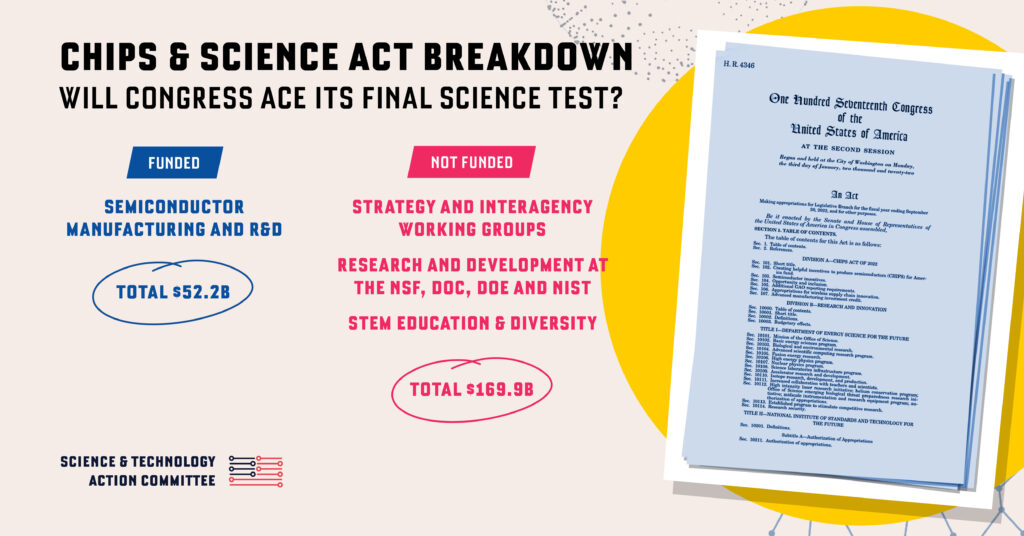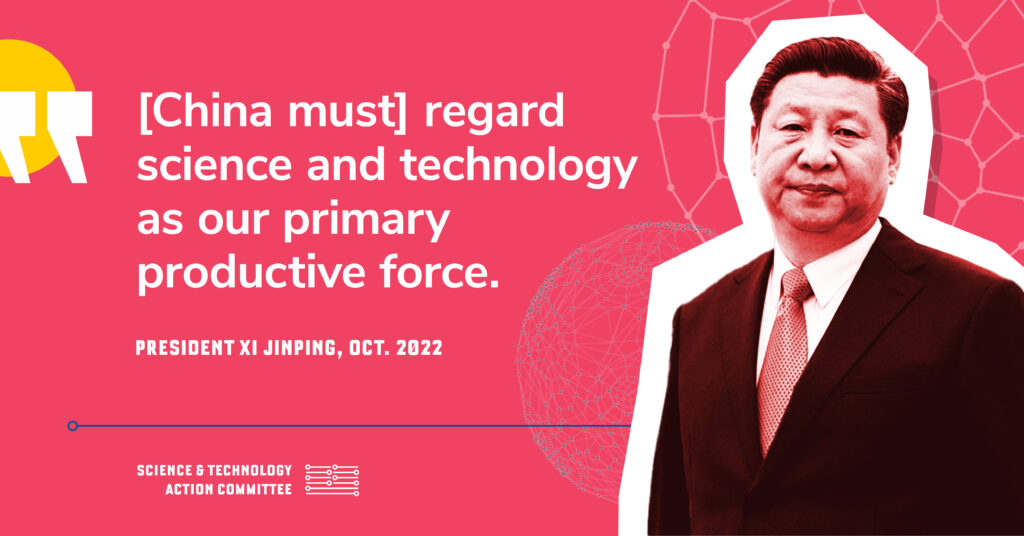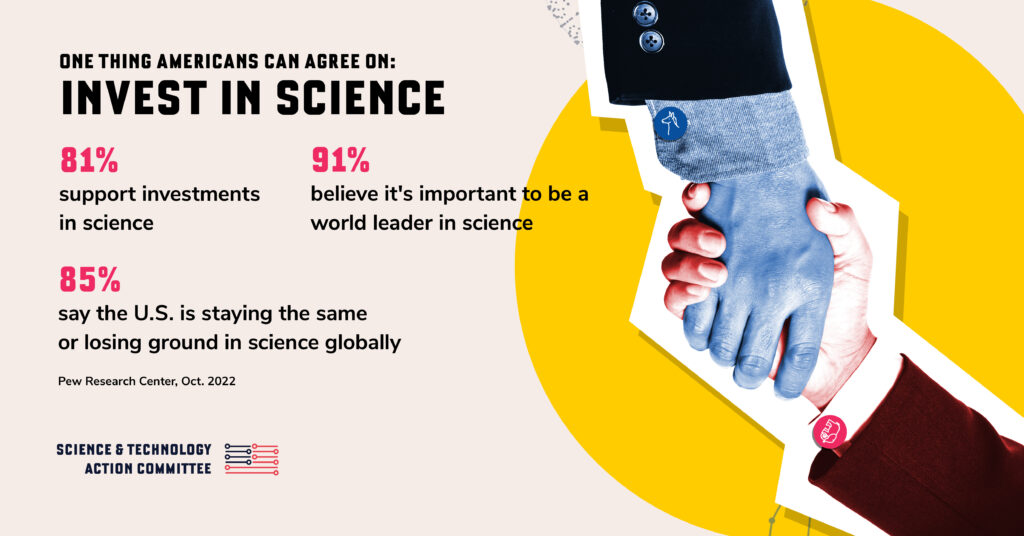The Task
The bipartisan passage of the recent competitiveness package marked an important milestone for Washington leaders. Now, in their final days, they must finish what they started by fully funding the vision laid out in this vital package. Doing so will greatly improve our national security, economic strength and global competitiveness for generations to come.

The Opportunity
The semiconductor and science package called for $169.9 billion over five years to support research and innovation across several federal agencies, including the National Science Foundation and the Departments of Energy and Commerce. But unlike the additional $52 billion in funding for the domestic production of semiconductors, the $169.9 billion for science and innovation has only been authorized, not appropriated.
D.C. leaders must appropriate the science portion of this act — and they’re running out of time.
Without funding, critical investments to strengthen America’s STEM workforce, fuel experimental research and build advanced labs and other scientific infrastructure will be left on the table. In addition, full funding in 2023 will set a stronger baseline for the 2024 budget and beyond. Securing this investment now increases the chance that subsequent cycles will provide adequate funding.
The Risk
Whether we like it or not, we are engaged in a fierce competition with China — a formidable international competitor — in science, technology and innovation. Failure to fully fund this package will allow China to take the reins of global leadership in science and technology. That would be disastrous, as the next era of innovation would happen overseas with devastating results: fewer American jobs, intrusive and unethical uses of technology and a more hostile and uncertain world.
Nowhere is this more visible than in China’s push to overtake American leadership in science and technology. While the U.S. President and Chinese President Xi Jinping agreed in a recent historic bilateral meeting to keep competition between the two countries from falling into conflict, that doesn’t mean the U.S. should pull back on spending in this area.

The U.S. must rise to the challenge — and it has just weeks to act. As both parties rightfully sound the alarm on China’s growing strength in this area, we need to fuel advancements in the U.S. in the technologies that will drive future economic strength and growth across the globe, including advanced bioscience, clean energy, quantum computing, artificial intelligence and advanced energy production and storage. We can only do that if leaders fully fund this act.
Let’s Get It Done

Over the past two years, Washington achieved remarkable bipartisan wins and enacted robust investments in science and technology. Now, they need to take the final step to secure the bold, innovative future they laid out.
Earlier this year, our leaders were determined to pass the science package on a bipartisan vote — and they succeeded. In the lame-duck appropriations cycle, they must bring that same resolve to fully fund this critical act.
